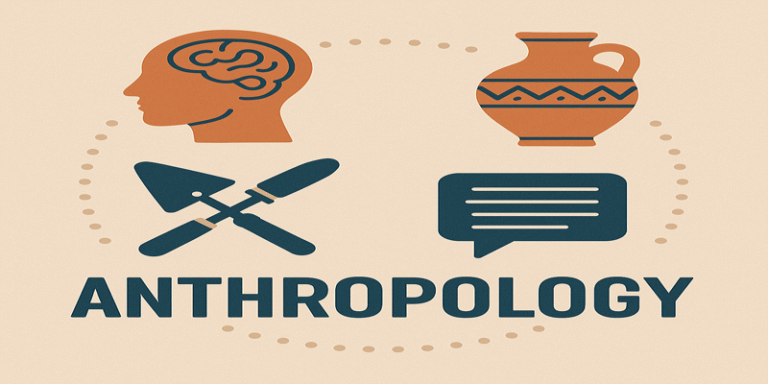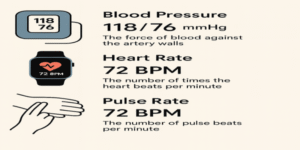Anthropology is the holistic and comparative study of human beings, encompassing biological, cultural, linguistic, and archaeological perspectives. It seeks to understand both the universal and diverse aspects of humanity through time and across space. In the United Kingdom, undergraduate anthropology degrees typically reflect this breadth by introducing students to foundational knowledge across the subfields, before offering the chance to specialise in later years (SOAS, 2022; UCL, 2025; Wikipedia, 2025).
Introduction to Anthropology
The introductory module—often compulsory in the first year—lays the groundwork for anthropological thought. It situates students in the discipline by focusing on key concepts such as culture, kinship, symbolism, belief systems, and ethnography. Through core readings, guest lectures, and ethnographic case studies, students become familiar with the principles of cultural relativism and anthropological comparison (SOAS, 2022). This stage is vital for deconstructing everyday assumptions and for cultivating the analytical lens necessary for the rest of the degree.
The Four-Field Perspective
Many UK anthropology departments follow the American-originated four-field model, pioneered by Franz Boas (1911), which integrates archaeology, linguistic anthropology, biological anthropology, and sociocultural anthropology. This structure reinforces anthropology’s holistic mission and encourages students to consider the full range of human experiences—from evolutionary biology to contemporary politics (Hicks, 2013; Wikipedia, 2025). Though UK departments may emphasise sociocultural perspectives more heavily, the Boasian framework underpins curricular design and encourages interdisciplinary thinking.
Research Methods in Anthropology
A critical component of anthropology degrees is the development of methodological competence. Modules on research methods cover both qualitative and quantitative techniques. Participant observation, in-depth interviews, fieldnotes, discourse analysis, and statistical interpretation are among the skills developed. Moreover, students engage with theoretical issues around reflexivity, positionality, and ethics (UCL, 2025). Fieldwork—either simulated or through short placements—may accompany these modules, as seen at universities like Leeds (2024), which offer hands-on exposure to material culture and ethnographic practice.
Ethics and Positionality
Advanced modules address the ethical dimensions of anthropological research. They explore the responsibilities researchers hold toward the communities they study and the importance of power dynamics, informed consent, and cultural sensitivity. Reflexivity—the practice of analysing one’s own role in the research process—is central to these discussions, helping students understand the social and historical contexts that shape knowledge production (UCL, 2025). These concerns are not merely academic; they reflect the discipline’s ongoing reckoning with its colonial past.
Core Theoretical Insights and Subfields
As students progress, they encounter modules that delve into diverse theoretical traditions and contemporary themes:
- Political and Economic Anthropology: This subfield investigates how power and economic relations shape social life. Goldsmiths’ module “Anthropology of Politics, Inequalities and Social Change” engages with inequality, neoliberalism, and social resistance (Goldsmiths, 2025).
- Environmental Anthropology: Offered at institutions like UCL, this module explores human-environment interactions, indigenous ecological knowledge, and climate justice. It is increasingly relevant in light of global environmental crises (UCL, 2025).
- Visual and Linguistic Anthropology: Modules such as “Ethnographic Film” at Goldsmiths train students in the visual documentation and semiotic analysis of cultures. Linguistic anthropology, meanwhile, studies language as a cultural resource (Goldsmiths, 2025).
- Medical Anthropology and the Body: Durham’s “Anthropology of the Body” explores themes of health, illness, aesthetics, and embodiment, highlighting cultural interpretations of the body and healthcare systems (Durham, 2024).
Advanced Conceptual Modules
In the final year, students often choose from advanced optional modules that allow deep dives into niche areas. Durham, for instance, offers “Anthropology, Art and Experience” and “Anthropology of the State,” which examine the interface between politics, creativity, and bureaucratic power (Durham, 2023). These modules are typically seminar-based and rely on advanced readings from both classic and contemporary theorists.
Independent Research and Dissertation
The culmination of most anthropology degrees is a dissertation or extended research project. This allows students to apply ethnographic methods and theoretical frameworks to a topic of their choice, often involving original fieldwork or textual analysis. It is a capstone experience, demanding self-direction, critical synthesis, and academic rigour (SOAS, 2022). The process also strengthens transferable skills in project management and scholarly communication.
Specialist Electives and Emerging Fields
Contemporary anthropology embraces a range of emerging fields and electives, reflecting the discipline’s responsiveness to global issues. Students can pursue modules related to:
- Forced Migration and Refugee Studies
- Museology and Heritage Management
- Digital Anthropology
- Soundscapes and Community Wellbeing
Institutions like SOAS, Goldsmiths, and Exeter offer such electives, enabling students to tailor their studies according to specific regional, thematic, or methodological interests.
The Central Role of the Four-Field Model
The influence of Franz Boas remains foundational. Boas (1911) rejected race-based evolutionary hierarchies, advancing the notion of cultural relativism—a commitment to evaluating cultures within their own frameworks. His four-field model promotes a comprehensive understanding of human diversity and continues to shape module design and disciplinary ethos (Hicks, 2013; Wikipedia, 2025).
Study Resources
Key Textbooks
A selection of canonical texts and peer-reviewed journals anchor module readings:
- Boas, F. (1911) The Mind of Primitive Man – challenges racist ideologies and argues for the equality of cultures.
- Geertz, C. (1973) The Interpretation of Cultures – remains a cornerstone in symbolic anthropology, emphasising thick description and interpretive ethnography.
- American Anthropological Association (2025) Perspectives in Cultural Anthropology – offers open-access, beginner-friendly chapters that support early-stage learners.
Key academic journals include:
- Current Anthropology
- American Anthropologist
- Journal of the Royal Anthropological Institute
- Cambridge Journal of Anthropology
These publications feature prominently in seminars, coursework, and dissertation research.
Methodological and Practical Training
Across their degree, anthropology students develop a robust skillset:
- Ethnographic fieldwork techniques
- Audio-visual documentation
- Discourse and textual analysis
- Reflexive ethical practice
- Statistical literacy
- Critical theory engagement
These competencies prepare graduates for a range of professional careers—in research, education, heritage, NGOs, policy-making, and beyond.
Degree Structure and Progression
Most UK undergraduate anthropology programmes follow a scaffolded curriculum:
- Year 1: Foundational theory, history of the discipline, and four-field overview
- Year 2: Thematic specialisations and research training
- Year 3: Independent research and advanced theory modules
The modular system allows for both structure and flexibility, with core requirements complemented by student-led exploration. Prospective applicants are advised to explore departmental websites for up-to-date module offerings and teaching styles, ensuring alignment with their intellectual interests and career goals.
References
American Anthropological Association (2025) Perspectives in Cultural Anthropology. Available at: https://www.americananthro.org.
Boas, F. (1911) The Mind of Primitive Man. New York: Macmillan.
Durham University (2024) ‘ANTH2257 Anthropology of the Body’, Durham University Undergraduate Handbook. Available at: https://www.durham.ac.uk/study/courses/anthropology-l602/?utm\_source=chatgpt.com.
Durham University (2023) Anthropology L602 Optional Modules. Available at: https://www.durham.ac.uk/study/courses/anthropology-l602/?utm\_source=chatgpt.com.
Geertz, C. (1973) The Interpretation of Cultures. New York: Basic Books.
Goldsmiths, University of London (2025) ‘Compulsory and Optional Anthropology Modules’. Available at: https://www.gold.ac.uk/anthropology/?utm\_source=chatgpt.com.
Hicks, D. (2013) ‘Four-Field Anthropology: Charter Myths and Time Warps’, Current Anthropology, 54(6), pp. 000–000. Available at: https://www.researchgate.net/publication/259726944\_Four-Field\_Anthropology\_Charter\_Myths\_and\_Time\_Warps\_from\_St\_Louis\_to\_Oxford.
Leeds University (2024) Undergraduate Module Catalogue – Anthropology. Available at: https://catalogue.leeds.ac.uk.
SOAS University of London (2022) BA Social Anthropology Module Catalogue. Available at: https://www.soas.ac.uk/study/find-course/ba-social-anthropology?utm\_source=chatgpt.com.
UCL (2025) ‘Anthropology BSc – module structure’, UCL Prospectus. Available at: https://www.ucl.ac.uk/prospective-students/undergraduate/degrees/anthropology-bsc?utm\_source=chatgpt.com.
Wikipedia (2025) ‘Four-field approach’. Available at: https://en.wikipedia.org/wiki/Four-field\_approach?utm\_source=chatgpt.com.









